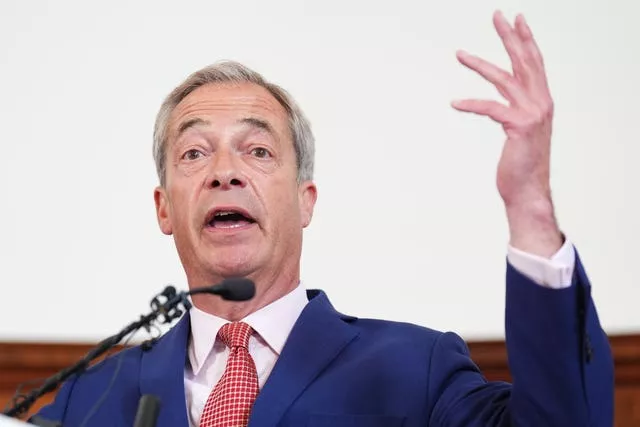A future Labour government in Britain could be “helpful” for Ireland, former taoiseach Leo Varadkar has said.
Mr Varadkar also said if the British Labour Party does form a government after next month’s election in the UK, he expects them to be “more even-handed” when dealing with Northern Ireland than the Tories.
The former taoiseach was asked about the implications of the UK’s July poll for the island of Ireland during an appearance at an event in Belfast on Saturday.
He said: “I think if it is a Labour government that could be helpful for Ireland.
“Certainly, they feel more of an attachment to the Good Friday Agreement than the Conservatives do.
“It was a Labour prime minister Tony Blair who negotiated it.
“They certainly will want a closer relationship with the European Union.”
Mr Varadkar added: “I think they will be more even-handed when it comes to dealing with Northern Ireland.
“Whereas the Conservative Party is the Conservative and Unionist Party, I think the Labour Party is probably a bit more even-handed.”
Mr Varadkar also welcomed Labour pledges to repeal the controversial Act to deal with the legacy of the Northern Ireland Troubles.
Labour has said it would restore legacy inquests and the ability for Troubles victims to bring civil cases if it comes to power.
Mr Varadkar said: “I think what they have said about legacy is very encouraging as well, that they will repeal and replace the legislation.”

He was also asked about the influence of Reform UK leader Nigel Farage on UK politics.
Mr Varadkar said: “Given the First Past The Post electoral system, they [Reform] still might not win any or many seats.
“I do think a lot of people in the Conservative Party, when they started to adopt Ukip’s policies, when they agreed to have a referendum on Brexit, they thought that all of that would make Farage and his ideology and philosophy go away.
“And weren’t they wrong?
“I think that is a lesson to centre-right parties – and my party [Fine Gael] is a party broadly of the centre right – that when you start copying the policies of the radical right, it’s a slippery slope.
“They don’t go away, they often get stronger.”







